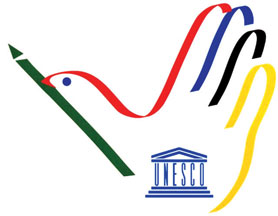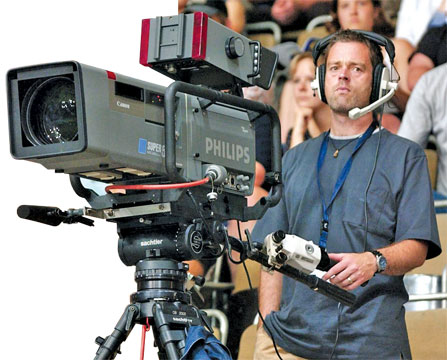|
 World Press Freedom Day on Tuesday: World Press Freedom Day on Tuesday:
New frontiers in 21st century media
By Pramod DE SILVA
More than a decade ago, while attending a training course conducted
by a reputed international news organisation, I was told that ‘no story
is worth your life’. Yet, journalists around the world risk their lives
every day to tell the complete story, take the complete picture. In
fact, 16 journalists have been killed around the world so far in 2011
and in 2010, the figure was 44.
However, obstacles to freedom of expression are only a part of the
story. Journalists and journalism itself are facing another challenge
which is also an opportunity. There are so many types of ‘new media’
which are competing with traditional media to catch public attention,
from Facebook and Twitter to mobile phone apps and websites.
It is in this backdrop that we are celebrating this year’s World
Press Freedom Day on Tuesday. Every year, May 3 is a date which
celebrates the fundamental principles of press freedom and examines
critical issues affecting the media.
The theme this year is, appropriately, ‘21st Century Media: New
Frontiers, New Barriers’. Events are planned in more than 100 countries
to celebrate the Day, which also marks the 20th anniversary of the
Windhoek Declaration for the promotion of free and pluralistic media.
Adopted in 1991 after a conference held in Windhoek on the
development of a free African press, this declaration emphasises the
importance of an independent press for the development and preservation
of democracy and economic development. Two years later, the UN General
Assembly established the World Press Freedom Day.
A special event is planned for May 4 at the United Nations
headquarters in New York to mark the 20th anniversary of the Windhoek
Declaration.
 This anniversary will be celebrated in Windhoek with a regional
conference to review the future of the media in Africa. A publication,
So this is media freedom? 20 years after the Windhoek Declaration on
press freedom, analysing two decades of media freedom in Africa, will
also be launched. This anniversary will be celebrated in Windhoek with a regional
conference to review the future of the media in Africa. A publication,
So this is media freedom? 20 years after the Windhoek Declaration on
press freedom, analysing two decades of media freedom in Africa, will
also be launched.
An international conference is being held in Washington from today
till May 3 on the theme for the Day, organised by UNESCO, the US State
Department and over 20 civil society partners. (Incidentally, this is
the first time the US is hosting a World Press Freedom Day event).
Social networking
The conference will be held at the Newseum, a museum devoted to the
history of the press and to freedom of expression worldwide.
Discussions will focus on the increasing role of the Internet, the
emergence of new media and the dramatic rise in social networking and
blogging and their immense power and reach. 'Actual' journalists are not
alone, citizen journalism is thriving on the Net, portraying the power
of the masses.
Indeed, the focus of the celebration is on the potential of the
Internet and digital platforms as well as the more established forms of
journalism in contributing to freedom of expression, good governance,
and sustainable development.
The word ‘press’ used to be just that - conventional newspapers. With
the increasing dominance of radio and television, the word ‘media’ found
favour. But now it is changing again.
The arrival of the digital revolution, the rapid development of the
Internet, the emergence of new forms of media (interactive iPad editions
of newspapers are an example), and the rise of online social networks
have reshaped the media landscape and made ‘the press’ of 2011 vastly
different from that of 1991, when the Windhoek Declaration was signed.
While new media platforms have made it possible for almost any
citizen to communicate to a large global audience, not everything out
there on the Net is the gospel truth. Separating the wheat from the
chaff is a challenge under these circumstances.
There are security, safety and privacy issues too. As UNESCO notes,
the challenge is to fully optimise the potential of the Internet and
digital media while not compromising civil liberties including the right
to freedom of expression and privacy.
 But one cannot deny the immense power of the Net and Net-derived
phone apps to inform and enlighten the world in a flash. But one cannot deny the immense power of the Net and Net-derived
phone apps to inform and enlighten the world in a flash.
For example, bloggers around the world are challenging authorities
and expressing their opinions via the Internet.
These new types of media have enriched news and information resources
and made inroads into the realm of print press, radio, TV and news
agencies.
But reports of the death of the traditional newspaper (at least in
its present dead tree form) are greatly exaggerated.
Newspapers represent a US$ 190 billion business globally with 1.6
billion readers a day in hundreds of languages.
Newspapers are the world’s second largest advertising medium,
exceeding the combined budget of radio, outdoor, cinema, magazines and
yes, the Internet. Combined with magazines, print is the world’s largest
advertising medium with a 42 percent share.
Life in print
There is life in print, yet. But in the long-term, print media may
find it extremely difficult to survive without going electronic in one
form or another - Web, Kindle, iPad etc.
A look at the book industry, where both paperback and hardback book
sales have been overtaken by e-books, confirms these worst fears.
Ideally, newspapers need to complement their print editions with a wide
variety of other outlets, with or without paywall systems.
These very issues will be addressed under the theme ‘Taking
Publishing to the Next Level’ at the World Newspaper Congress and the
World Editors Forum in October this year in Austria.
Print journalists too must adapt to these changes without essentially
being bound to the print medium.
For example, some print journalists already carry small SD card-based
video cameras with stills capability to shoot short videos which can be
uploaded to their interactive, full multimedia Web and iPad editions.
On the other hand, many radio and TV journalists have their own
blogs.
Thus the distinction between print and electronic media is already
blurring, which is a healthy overall development for the media.
Humble reporter
May it be print, Web, new media, radio or TV, the humble reporter is
the heartbeat of the media. It is his or her courage (an increasing
number of journalists and media workers are women) that helps to keep
the reader or viewer (again, the distinction is blurring) informed.
 Although other pertinent issues are discussed, the World Press
Freedom Day is their day, above all else. Although other pertinent issues are discussed, the World Press
Freedom Day is their day, above all else.
From a war correspondent working for a global media giant to the
health reporter of a small regional newspaper, their duty is to tell the
story, the truth, as it is, in a responsible manner. To recognise their
courage, UNSECO annually presents the UNESCO/Guillermo Cano World Press
Freedom Prize, created in 1997.
Each year it honours a person, organisation or institution that has
made an outstanding contribution to the defence and/or promotion of
press freedom anywhere in the world, and especially when this has been
achieved in the face of danger.
It was established on the initiative of UNESCO’s Executive Board and
is formally conferred by the Director-General of the Organisation, on
the occasion of World Press Freedom Day, on May 3.
The prize is named in honour of Guillermo Cano Isaza, a Colombian
journalist who was assassinated in front of the offices of his
newspaper, El Espectador, in Bogota, on December 17, 1986. This year’s
recipient is Iranian journalist Ahmad Zeidabadi.
We cannot predict what the media will be like 20 years hence.
Technology moves so fast, but the will and the courage to tell the
story shall remain.
All should thus ensure the freedom of the media and protect the
public’s right to information.
|

